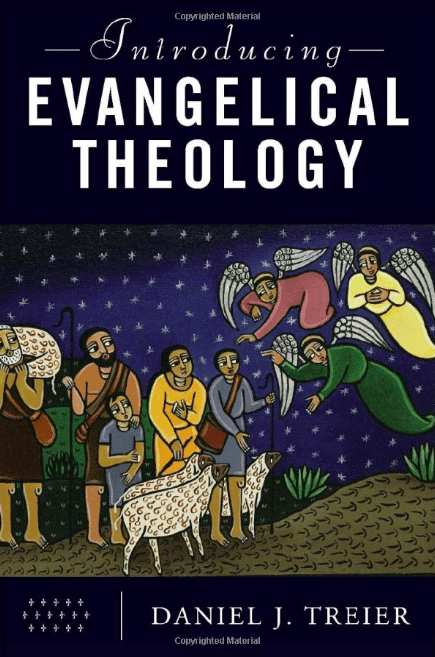 OK, I’m tired of the term “evangelical” but let’s get over it and just (for the moment) drop the discussion and ask What would an evangelical theology look like? Many would say “biblical” and that, like forgiveness said C.S. Lewis of forgiveness, is a lovely idea until someone has to choose which “biblical” body of literature would take as the set of categories.
OK, I’m tired of the term “evangelical” but let’s get over it and just (for the moment) drop the discussion and ask What would an evangelical theology look like? Many would say “biblical” and that, like forgiveness said C.S. Lewis of forgiveness, is a lovely idea until someone has to choose which “biblical” body of literature would take as the set of categories.
Try as one might one has to choose when it comes to “biblical.” The most influential evangelical biblical theology of the last 50 years is GE Ladd’s A New Testament Theology and, truth be told, he used the eschatological vision of Jesus’ teaching on the kingdom and in some ways imposed that on the rest of the NT — and provided insight. But his overall form of NT theology was virtually unusable in catechisms, in church theological statements, and in anything close to a pastoral theology. (I cut my teeth on Ladd so this is not a criticism.)
To be fully biblical one has to sort through each author of the Bible — Old and New Testaments — and let each say things as they say them. Long ago GB Caird did a nice job in his New Testament Theology, asking each author of the New Testament come to a conference table and answer questions about salvation, etc.. This is how to do it, but it would take three volumes and, in most cases, there are both lots of loose ends and not enough synthesis.
So, what to do?
One approach has been the so-called loci: God, humans, Christ, sin, salvation, ecclesiology and eschatology. This has been the approach of many if not most Protestant systematic theologies. One volume after another, from Hodge to Strong to whichever modern theologian one is assigned and has on the shelf, has sought to rehearse, repeat and reframe the loci. This approach has been eminently useful to many. It answers questions, it organizes topics, it often provides biblical support.
But, another approach has been even deeper in the history of the church. The big bonus here is that it fits with church worship. I’ll say it then: the loci approach is for a classrooms and the other approach is for church theology.
Enter Daniel J. Treier’s wonderful new Introducing Evangelical Theology. (Thank God Dan avoids an argument about the meaning of “evangelical.”) What is this approach? The credal approach. What does it look like? The Three Articles of our Creed. Here theology is not forced into one biblical author that mutes the voice of other biblical authors, but instead it is shaped by the fundamental categories of the great tradition that forms the Apostles’ Creed and the Niceno-Constantinopolitan Creed. Yes, Bible. And Yes, the church’s formation of its basic ideas. There’s no claim here to be the biblical theology.
Perhaps best, it turns “evangelical” away from some of its petty theological debates and pushes it back to the origins of Christian theologizing in the Creed.
So, here is how Treier organizes his theology:
- Knowing the Triune God: creed, ten commandments, Lord’s prayer
- The Father, the Almighty Lord: triune name of God, providence, goodness of creation, human beings.
- The Son, the Mediating Logos: identity, reconciliation, sin and salvation, the gospel
- The Holy Spirit, the Life Giver: God’s empowering presence, scripture, church, all things new.
I’d put church prior to scripture in this ordering, but I really like this ordering: it’s sorted by God as Trinity instead of simply soteriology.
If I were teaching “theology” in a seminary or college, this would be my text and one big reason is that it draws us to the creed, the faith common to all Christians. I do think there are other approaches to doing theology — narrative, systematic loci, biblical, or even running a category (kingdom, salvation) through the whole Bible — but this is one that could bring a lot of unity between Christians.
Join me as I go through this book — or sample its chapters.











